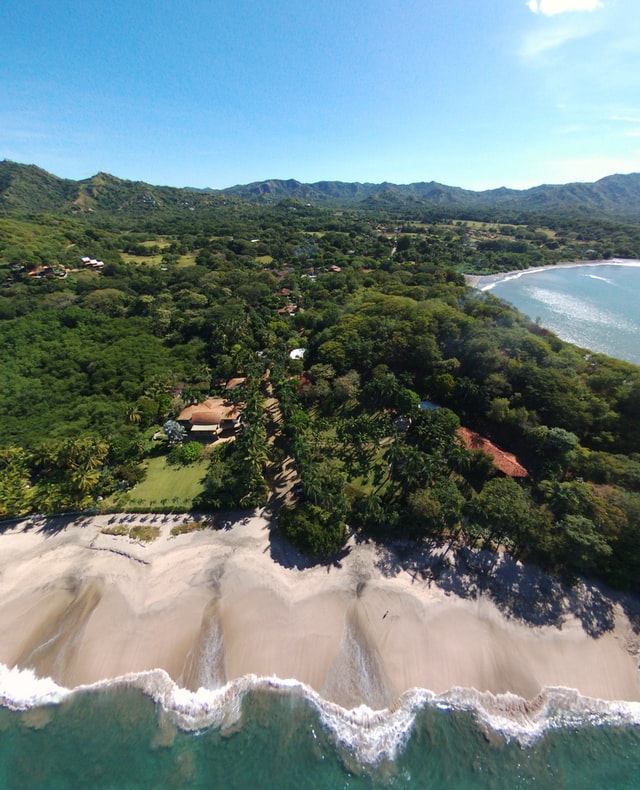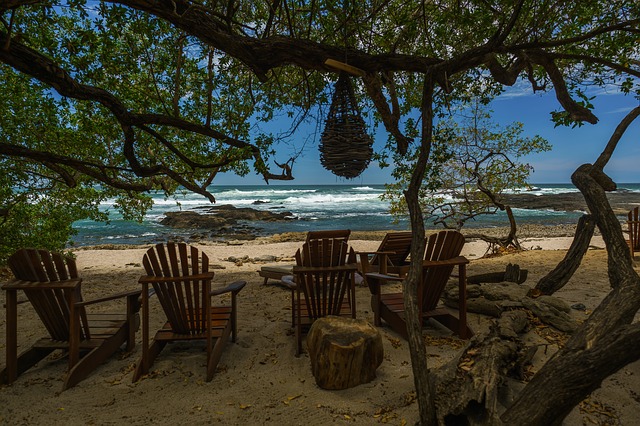In carrying out our blog’s mission is to be as informative and up to date on luxury lifestyle topics for readers, our journey can veer to a subject matter that peaks individuals curiosity especially in light of current events. I have been fortunate to work with a couple of associates who have created a business model of educating U.S. citizens on nuances of becoming an expat. Historically, an expatriate was defined with a negative connotation in which a citizen is thrown out of a country or denounces his or her citizenship.

Enter the 21st century and the explosive growth and acceptance of technology and embracing a digital life whether for business, personal, or both, an expat has become an acceptable lifestyle choice for citizens of western countries. The reasons can vary from a career or business purpose, political, economic, retirement, or just a desire to immerse oneself into a different culture. Semi-retirees who are not quite ready to resign themselves to the hammock life, are embracing their second or third stage of life by pursuing entrepreneurial opportunities in countries enthusiastically rolling out the welcome carpet. Finding this topic intriguing, we are adding a blog series exploring the world of expats and countries that are friendly to foreigners ready to uproot for a new journey. Up first…Costa Rica!

Costa Rica is located in Central America bordering Nicaragua to the north and Panama to the south with over 800 miles of coastline of the Caribbean coast and the Pacific coast. Home to over 500,000 different species of animals and plants. Several islands are a part of Costa Rica including Cocos Island, Puntarenas, and Calero Island. The five largest and/or most popular cities are:
– San José – the Capital of Costa Rica
– Puerto Limon – main city on the Caribbean side of Costa Rica
– Alajuela
– Heredia
– Cinco Esquinas

Home to over 5 million people, the country’s ethnicity breaks-down to White or Mestizo (83.5%), Mulatto (6.7%), Indigenous (2.4 %), Black of African descent (1.1%), and other/none/unspecified (6%). Christianity is the dominate religion with Roman Catholic as the official state religion, although religious freedom is guaranteed by their Constitution. According to expats, the Costa Ricans are respectful of other cultures and the government recognizes same-sex partnerships as dependent spouses.

In 1948 Costa Rica dissolved its armed forces and diverted those funds into their healthcare and education systems. The country has a high standard of living and an educated population from a well-developed social benefits system (20% of GDP annually) in providing universal access to education, healthcare, clean water, sanitation and electricity.
Costa Rica’s economy consists of a large agricultural sector, technology sector, and eco-tourism. The standard of living is above average and prior to the pandemic had enjoyed stable economic growth due to embracing foreign investment and trade. Agricultural products of bananas, coffee, sugar, and beef are the cornerstone of exports with the addition of industrial products such as medical devices and electronic components. The country’s commitment to biodiversity is responsible for the major growth in ecotourism. In 2015, Costa Rica committed to zero-based carbon footprint by 2021.

The climate is typically tropical and subtropical; dry season (summer) is December to April and the rainy season (winter) takes place from May to November. Humidity is higher on the Caribbean side than on the Pacific Side. Coastal plains are separated by rugged mountains dotted with four volcanoes of which two are active. The country has occasional earthquakes, hurricanes along the Atlantic coast, and frequent flooding and landslides during the rainy season.

What attracts potential expats to the country of Costa Rica? Developed into a true sanctuary for expats by offering a mixture of over the top natural beauty, incredible standards of living, and an unparalleled health system. Once an expat has earned legal residence, the opportunity is open to join the country’s first-class public healthcare system, the Caja Costarricense de Seguro Social, the Caja for short. The healthcare system is ranked in the top 20 by the United Nations and one of the best in Latin America. Keep in mind, non-residents are able to pay for private healthcare by cash or insurance and still enjoy most medical services at a fraction of the cost of the U.S.


A second attraction is an ability to enjoying a healthier lifestyle (diet and exercise) with year-round tropical weather as a backdrop, the opportunities for outside activities are plentiful from jungle/mountain hiking, to playing on numerous tropical golf courses, to water activities on miles of beaches located on both coasts (i.e., surfing, rafting, fishing, and scuba diving, etc.). When visiting Costa Rica, the choices of accommodations vary from jungle-locked lodges, high-end beachside resorts, vacation rental homes or Airbnbs, scientific research stations, boutique hotels, ecolodges (properties committed to conservation), and finally home-stays (living with a Costa Rican family to participate in daily life and language) – whatever your heart desires.
Fining Dining can be found at high-end resorts, American type meals are located in more tourist locales, fast food restaurants are non-existent, natives enjoy simple and healthy cuisine from an abundance of fresh fruits, vegetables, and seafood cultivated in Costa Rica.
Spanish is the official language, however many Costa Ricans especially those in the tourist industry are proficient in English. Foreigners have the option to attend language schools or immersion language programs that force periods of time interacting with Spanish-speaking natives.
Recognized as a leader in environmental policies and contributing to climate change standards, it uses funds from fuel tax, car stamp; duty and energy fees to pay for nature reserve management, and environmental services towards clean air, fresh water, and biodiversity protection. As an incentive, landowners are paid to preserve old-growth forests and to plant new trees to tackle deforestation; yet will penalize business and homeowners that dump pollutants into waterways.

In regards to safety, be particularly conscious of your passport. It is suggested to carry a photocopy or picture on your Smartphone (with a copy of the stamp dated the day you entered the country) and leave passports in a hotel safe or other secure location. Petty crime is the major offenses against foreigners (vehicle burglary, pick-pocketing, mugging, purse/wallet snatching, etc.); violent crimes like armed robbery, homicide, and sexual assault do occur as well, although less frequently.
Realtors forecast that rentals will be significantly reduced from 2019 prices and investors and buyers of real estate will have an advantage post-pandemic as construction has halted on homes and condos with lost development funding. Homes are relatively affordable, even in coastal areas, averaging under $100,000. A downside to the infrastructure is the roads that are filled with potholes, dips, and cracks making driving conditions unsafe and dangerous.

Qualifications for obtaining residency consists of either being retired with a pension, have a substantial investment portfolio or plan to open a business in Costa Rica. Obviously, visiting the country for vacation and connecting with other expats will help with deciding on permanent living arrangements for you and your family. Traveling as a tourist only requires a valid passport for citizens of the U.S., Canada, and most Latin American and European countries. 90 days is the period of time allowable and when entering the country, you must present a departure ticket. Vaccinations recommended by the World Health Organization (WHO) include Hepatitis A, typhoid, yellow fever, rabies, and tetanus.
The U.S. Embassy in San José suspended routine consular and Visa Services in March due to COVID-19. As of this writing, there is still no update as to when the Embassy will resume services.
Costa Rica’s rapid response to controlling and preparing for a post-pandemic re-entry into their country was impressive; stay at home orders were implemented mid-March and all borders were closed to foreigners which succeeded in initially flattening the pandemic’s curve. However, they are experiencing a second wave of COVID-19 cases and has imposed “Orange Alerts” for various districts and cantons base on outbreaks. As of July 7th, masks are required in all public places. Anyone arriving in Costa Rica from another country must self-quarantine for 14 days. The government announced its borders will be opened to tourists on August 1, yet the country is bracing for a significant drop in visitors due to number of airlines that will resume activities and then the frequency of flights. Businesses are already preparing to inevitably drop prices to re-attract tourists.

God willing, the time will arrive when travel restrictions outside the U.S. (Or for that matter within the continental U.S.) and the ability to quench our wander lusting thirst will begin again. For some of us, fulfilling a desire to embrace a life outside of our native country may come to fruition after having borders shut down in keeping their own citizenry healthy. -AJ
Share your own Costa Rica memories in the comment section below or on Twitter!
Thank you to these websites for providing content on Expats:
WikiTravel – Costa Rica
Central Intelligence Agency – World Factbook
The U.S. Embassy – Costa Rica
Expat.com – Destination Costa Rica
Hat Tip to the following photographers for capturing the beauty of Costa Rica
Chalo Garcia – Vacation property in Guanacaste Province, Potrero
David Traña – Alajuela, San Fernando Waterfall
Christina Victoria Craft – Luxury Real Estate in Manuel Antonio, Puntarena Province
Miguel Bruna – Braulio Carrillo National Park
Miguel Bruna – Limón Province Costume for Day of the Dead
Ricardo Arce – Playa Hermosa
Minke Wink– Sloth
Andrés Acuña – Marina Los Suenños, Herradura, Puntarenas
Keon One Stop Map – Costa Rica
Manuel de la Fuente – hydroelectric plant
Frank Ravizza – Costa Rica view
Tomblindspot – Red-eyed tree frog
SHARE POST
Customer Favorites





















